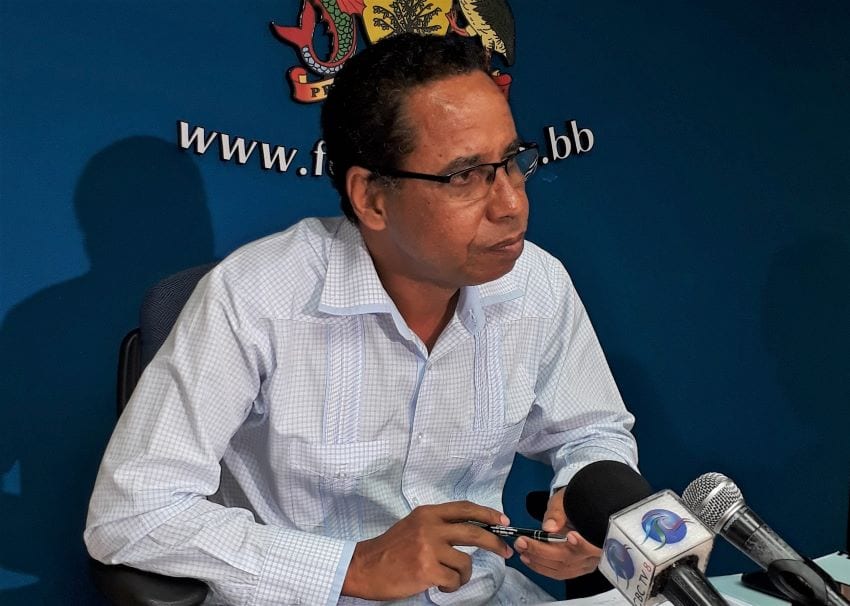A new CARICOM/Caribbean private sector organization has been established to facilitate the planning processes of the Caribbean Community (CARICOM), and to help with implementing some of the various initiatives under the CARICOM Single Market and Economy (CSME).
This was disclosed by Barbados’ Ambassador to CARICOM, David Comissiong, during a press conference on Thursday at the Ministry of Foreign Affairs and Foreign Trade to highlight some of the decisions coming out of the 40th Regular Conference of Heads of government of the Caribbean Community, held in St Lucia, from July 4 to 6.
Ambassador Comissiong explained that CARICOM Heads of Government recognized that if significant progress was to be made with implementing the CSME in the future, then the private sector had to be involved in both the planning and the decision-making.
He noted that last year, the Heads of Government of CARICOM accepted a proposal by Prime Minister Mia Mottley to invite the Caribbean private sector to put together a regional representative body that would be installed as an associate institution of CARICOM.
“The regional private sector came to the St Lucia conference and presented the work that they have done on this matter over the past several months, and what they presented was the establishment of a new CARICOM/Caribbean private sector organization. It is being proposed and is being accepted that that organization will establish an office, right here in Barbados,” he said.
He added that sufficient resources to finance the Caribbean organization had already been put together to last for the next five years, with the organization negotiating a Memorandum of Understanding with CARICOM to work out the modalities for its engagement with that body.
Ambassador Comissiong noted that the organization was mandated to come up with a programme to develop food production, and to have this presented in a report on September 15, 2019.
“So, this is a major step forward and it is a major vote of confidence by the regional private sector in CARICOM to the extent that they are actually prepared to bring their financial resources to the table and to establish an office in Barbados,” he said.
“Here, we have the private sector talking the talk and walking the walk, [and] actually organizing themselves regionally and establishing the structures to be part of the planning processes of CARICOM and to help with implementation of the various CSME initiatives,” he stated.
The envoy commended the regional private sector for setting “a very good example”, noting that negotiating a Memorandum of Understanding, and setting up a regional headquarters would be a good model for the regional labour movement and civil society.
Ambassador Comissiong explained that Barbados was chosen as the home of the organization because Barbados has lead responsibility for the CSME, and was the location of the CARICOM Secretariat’s CSME Unit.




